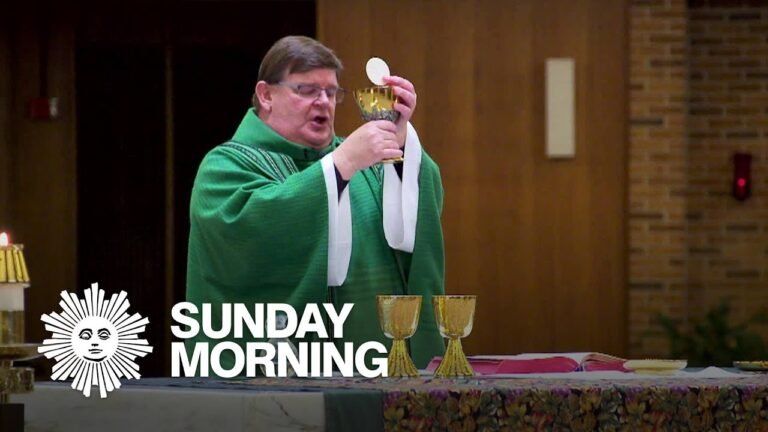Was Daniel a Eunuch? Exploring the Evidence
The question of whether Daniel was a eunuch has intrigued scholars and readers of the Bible for centuries. This inquiry not only delves into the historical context of the Babylonian exile but also raises important discussions about identity, power, and the roles assigned to individuals in ancient societies. By examining biblical texts, cultural practices, and historical interpretations, we can uncover the layers of meaning surrounding Daniel’s status and its implications for understanding his remarkable story of faith and resilience.
In which part of the Bible is it mentioned that Daniel was a eunuch?
The topic of Daniel’s status as a eunuch arises from biblical interpretations rather than explicit statements. Isaiah 39:7 alludes to the fate of Hezekiah’s descendants, indicating that they would be taken to Babylon and made eunuchs. This prophecy sets a historical context for understanding the challenges faced by Daniel and his companions during their time in exile, yet it does not directly confirm Daniel’s condition.
While some scholars suggest that Daniel may have been a eunuch, the Bible does not provide a definitive answer on this matter. The focus of the narrative is not on his physical state but rather on his unwavering faith and commitment to God amidst adversity. Daniel’s ability to interpret dreams and visions showcases his divine wisdom, illustrating that his worth in God’s eyes was based on his character and faithfulness.
Ultimately, whether or not Daniel was a eunuch does not detract from the significant role he played in the biblical narrative. His life exemplifies resilience and devotion to God, serving as an inspiration for believers. The essence of his story lies in his commitment to uphold his faith, demonstrating that God’s plans transcend human circumstances.
Did Daniel have a wife in the Bible?
Daniel, a prominent figure in the Bible, is widely believed to have never married. The absence of any reference to a wife or family in the Book of Daniel and throughout the scriptures supports this notion. Furthermore, the mention in 2 Kings 20:18 about some sons being taken into exile and becoming eunuchs serving in the Babylonian palace underscores the likelihood that Daniel led a life of singular devotion, focused on his faith and service rather than family life.
What are Jesus’ teachings regarding eunuchs?
In the teachings of Jesus, eunuchs are acknowledged as individuals with unique circumstances and roles within the kingdom of heaven. He identifies three categories of eunuchs: those born this way, those made eunuchs by others, and those who choose this path voluntarily for spiritual reasons. This distinction highlights the diversity of human experience and commitment to faith.
Jesus emphasizes the intentional choice some make to live as eunuchs for the sake of the kingdom. This call to a life of celibacy is not merely a denial of physical relationships but represents a profound dedication to spiritual pursuits. It showcases the idea that some may find greater fulfillment and purpose by prioritizing their relationship with God over conventional societal norms.
Ultimately, Jesus invites those who can accept this teaching to embrace it. His message encourages an understanding of different lifestyles and the various ways individuals can contribute to the divine mission. In this light, eunuchs serve as vital examples of how personal sacrifice can enhance one’s spiritual journey and commitment to a higher calling.
Unraveling the Mystery of Daniel’s Identity
The enigmatic figure of Daniel has captivated scholars and enthusiasts alike for centuries, prompting a quest to uncover the layers of his identity. Often associated with the biblical narrative, Daniel’s life story intertwines themes of faith, resilience, and divine insight. From his role in the Babylonian court to his prophetic visions, Daniel’s experiences offer a rich tapestry that reflects both historical context and spiritual significance.
As we delve deeper into the historical and cultural backdrop of Daniel’s time, we encounter a world marked by political upheaval and spiritual diversity. This setting not only shaped Daniel’s character but also influenced his prophetic messages, which resonate with timeless truths. By examining the historical texts and archaeological findings, we gain a clearer picture of the challenges he faced and the values he upheld, revealing a man whose identity transcends mere legend.
Ultimately, unraveling the mystery of Daniel’s identity invites us to reflect on our own beliefs and convictions. His unwavering faith in the face of adversity serves as an enduring inspiration, encouraging us to seek wisdom and understanding in our lives. As we piece together the fragments of his story, we discover that Daniel is not just a historical figure; he embodies the universal quest for meaning and purpose, inviting us to explore the depths of our own identities.
Historical Insights on Eunuchs in Ancient Times
Throughout history, eunuchs have played pivotal roles in various societies, often serving as trusted advisors, guardians, and diplomats. In ancient civilizations such as China, Persia, and Rome, eunuchs were frequently employed in royal courts due to their unique status, which allowed them to navigate the complexities of palace life without the threat of familial rivalry. Their inability to father children made them less of a political threat, enabling them to wield significant influence over kings and emperors, shaping policies and decisions that impacted entire nations.
The social and cultural perceptions of eunuchs were complex; they were at once marginalized and revered. In some cultures, their service was essential for maintaining the stability of the royal lineage, as they were often tasked with the care of the emperor’s harem. This duality highlights the intricate dynamics of power and gender in ancient societies, where eunuchs were seen as both a necessary part of governance and symbols of the sacrifices made for loyalty and service. As we explore their historical significance, it becomes clear that eunuchs were more than mere court attendants; they were key players in the political arenas of their time, leaving a lasting legacy on the governance of ancient empires.
The Role of Eunuchs in Biblical Narratives
Eunuchs occupy a distinctive and often overlooked position in biblical narratives, serving as complex figures that challenge societal norms and expectations. In ancient times, they were frequently entrusted with roles of significant responsibility, such as managing royal households and serving in the courts of kings. Their unique status, often marked by physical alteration, allowed them to navigate spaces that were typically closed to others, granting them a perspective that enriched the biblical texts.
The presence of eunuchs in scripture also highlights themes of inclusion and divine purpose. For instance, the story of the Ethiopian eunuch in the book of Acts illustrates how individuals marginalized by society can find acceptance and fulfillment in faith. This narrative not only emphasizes the transformative power of spirituality but also reflects a broader message of God’s love extending beyond conventional boundaries, inviting all individuals to partake in the promise of salvation.
Moreover, eunuchs symbolize the complexities of identity and belonging within the biblical framework. Their existence prompts reflections on what it means to be part of a community and how one’s value is defined not by societal standards but by one’s relationship with God. Through these narratives, eunuchs emerge as powerful reminders of the importance of compassion, understanding, and the celebration of diversity in faith communities, encouraging readers to reconsider their own perceptions of inclusivity.
Evidence and Interpretation: Daniel’s True Nature
In the narrative of Daniel, a character often shrouded in mystery, we find a compelling exploration of duality and moral integrity. His actions consistently reflect a profound commitment to truth and justice, even in the face of overwhelming adversity. The evidence of his choices, from standing firm against injustice to offering wisdom in challenging times, paints a portrait of a man whose true nature is defined by resilience and honor. Each decision he makes resonates with a depth that invites deeper reflection on the values he embodies.
Yet, as we delve into the interpretation of Daniel’s journey, it becomes clear that his character transcends mere heroism. His struggles and triumphs serve as a mirror, reflecting the complexities of human nature itself. The layers of his persona reveal not only the light of virtue but also the shadows of doubt and fear that accompany every significant choice. Through this lens, Daniel emerges not just as a symbol of righteousness but as a relatable figure, reminding us that our true nature is often forged in the crucible of our experiences and decisions.
The question of whether Daniel was a eunuch invites intriguing exploration into the historical and cultural context of the time. This inquiry not only sheds light on the life of one of the Bible’s most significant figures but also prompts deeper reflections on identity, power, and the sacrifices made in the pursuit of purpose. Understanding Daniel’s status enriches our grasp of his story and highlights the complexities of ancient society, leaving us with a compelling narrative of resilience and faith amidst adversity.







